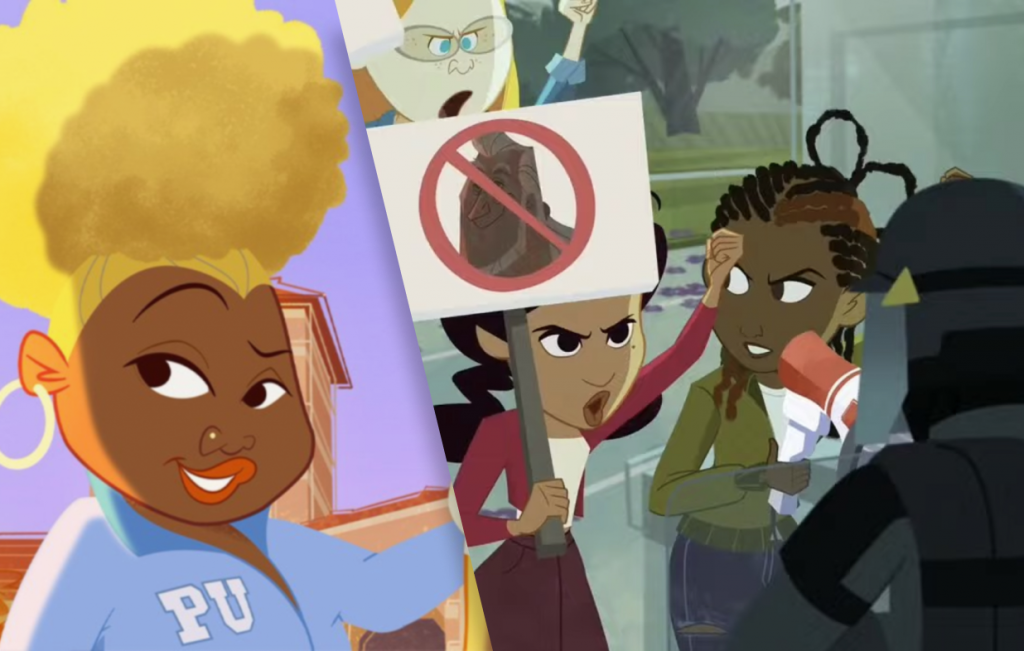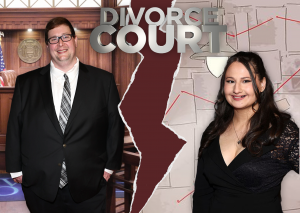For many young Black kids growing up, myself included, Disney’s animated series “The Proud Family” was a hilarious and relatable representation of Black family life and coming-of-age issues.
The show, which ran from 2001 to 2005, focuses on the life and family of Penny Proud, a 14-year-old girl who is routinely embarrassed by her father and often gives in to peer pressure, but learns from her mistakes along the way.
In 2020, it was announced that a reboot was in the works and last February “The Proud Family: Louder and Prouder” premiered on Disney+. In its first two seasons the show has addressed topics such as colorism, wokeness and homelessness, while also featuring a number of celebrity guest voices from Lizzo, Lil Nas X and Gabrielle Union to name a few.
Despite stellar ratings, “Louder and Prouder” has been marked by several controversies surrounding its portrayals of dark-skinned female characters and conversations about white fragility.
As disappointing as it was to realize, there is some truth to the statements about colorism and racist stereotypes, in both the original and reboot, regarding Penny’s best friend Dijonay Jones. She is a loud, untrustworthy and aggressive person with selfish tendencies, not to mention has much more of an attitude than her lighter-skinned counterparts.
These aspects of Dijonay’s personality are built on harmful, negative attributes that have long been attached to Black women, especially those with darker skin tones. However, she isn’t entirely one-dimensional.
Although she sometimes abandons her friends, it’s evident that Dijonay cares about Penny and isn’t afraid to stand up for her. We also see her experience extensive character development and growth in the second season of “Louder and Prouder.”
I don’t think it’s fair to reduce Dijonay to the stereotypes present in her character, but they shouldn’t be ignored either. The creators need to be more conscious of the messages they send in portraying certain characters and prioritize correcting historical misrepresentations of members of the Black community.
On the other hand, there was separate backlash from negative reactions to episodes “Curved” and “Juneteenth” from the reboot’s second season. Both include a deep dive into the federal holiday that observes the day African Americans received independence from slavery. “Curved” features a powerful speech about slavery and “Juneteenth” furthers the conversation with an LGBTQ+ inclusive story.
When it’s revealed in “Juneteenth” that the founder of their city was a slave owner, the kids protest to cancel the ceremony planned in his honor and for the founder’s statue to be torn down. Critics slammed the episode and called it “anti-white” for featuring a song about slavery and its modern-day forms as well as the need for reparations.
That’s beyond false for several reasons. The song doesn’t attack white people in any way; it explains the history of Black people’s treatment in America. It’s incredibly potent, especially considering the education and honest conversation that the episode provides about a topic often whitewashed in schools. The story’s development is aided by showcasing the interpersonal conflict between a young Black girl and her white gay father as he learns to further understand white privilege and accountability.
This series is far from anti-white, and it’s important for everyone, not just children, to see hard truths about slavery and America’s past being addressed and explained in an approachable way. The fact that the discussion makes people uncomfortable is precisely why we must continue to talk about it.
While “The Proud Family: Louder and Prouder” will benefit from some adjustments, it is taking risks to be socially conscious and so far, I’ve thoroughly enjoyed watching.





